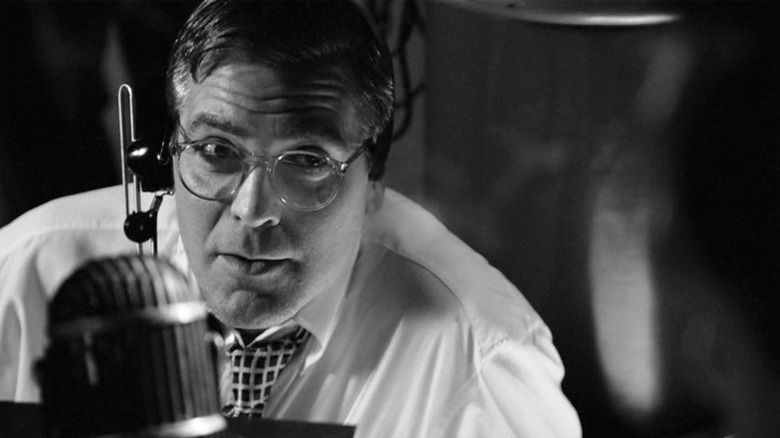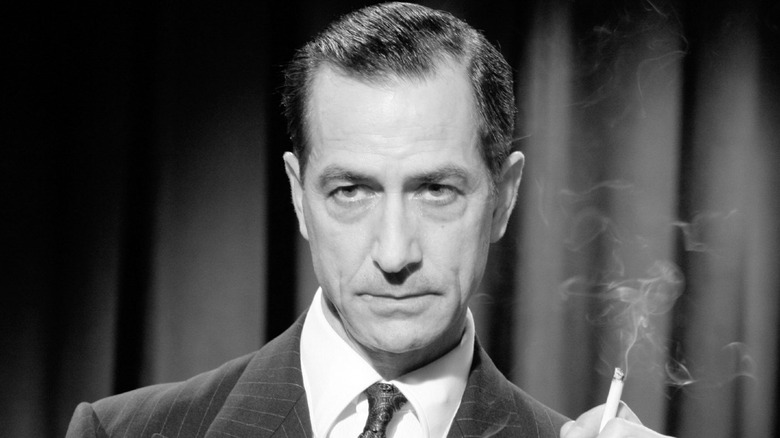George Clooney's Good Night And Good Luck Is Becoming A TV Series
Edward R. Murrow once warned of television, "This instrument can teach, it can illuminate; yes, and even it can inspire. But it can do so only to the extent that humans are determined to use it to those ends. Otherwise, it's nothing but wires and lights in a box." If he were alive today, well, he'd be talking about a rectangle for starters. He'd also, most likely, be utterly devastated at the state of journalism in America.
17 years ago, George Clooney brilliantly restaged a precarious moment in U.S. history with "Good Night, and Good Luck." This was the tale of Murrow and his CBS News producer Fred Friendly, who laid their professional lives on the line to take on the fascist, red-baiting bully that was Wisconsin Senator Joseph McCarthy. While McCarthy and his media attack dogs like Jack O'Brien brazenly accused CBS reporter Don Hollenbeck of being a pinko commie, Murrow stayed the course and methodically, factually tore McCarthy limb from mendacious limb. It was a triumph of top-flight journalism, one that plays like sheer fantasy in today's toxic environment.
It's hard to imagine telling the story more concisely than Clooney and co-writer Grant Heslov did with "Good Night, and Good Luck," but Murrow and Friendly didn't do it alone. So it's encouraging to hear, via The Hollywood Reporter, that Clooney and Heslov have teamed with Jonathan Glatzer, who's written on "Better Call Saul" and "Succession," to tighten up the microscope on this amazing moment in journalism history.
Diving deeper into the weeds of broadcast journalism
The show will air on AMC, which was also home to Clooney's adaptation of Joseph Heller's "Catch-22." The network describes Glatzer's take thusly:
"The series follows Sy Steingartner, a young cameraman for Murrow's 'See It Now,' who is forced to juggle his admiration for Murrow with his own ambition. With the CBS brass pushing an anti-Communist Loyalty Oath on Murrow and his staff, Sy has an opportunity to rise straight to the top, but only by betraying his mentor in the process. With wit and keen observation, the series confronts how we respond to chaos and the values that pull us through."
This is fascinating, and very in keeping with the tragic style of storytelling favored by both shows for which Glatzer has written. The notion of betraying one's mentor is Shakespearian stuff, but Murrow isn't Logan Roy. He was a principled journalist rendered obsolete by ratings- and advertising-driven news. No one is a saint, but given everything I've read about Murrow, he had a keen BS detector.
I dig the pedigree here, but Glatzer's got his work cut out for him. Fictionalizing this era makes me a tad queasy. And yet I know how much this story means to Clooney, whose father, Nick Clooney, is one of the most beloved broadcasters to ever come out of Ohio. Clooney's heart and mind are in the right place. He nailed this material once. Why not again?

